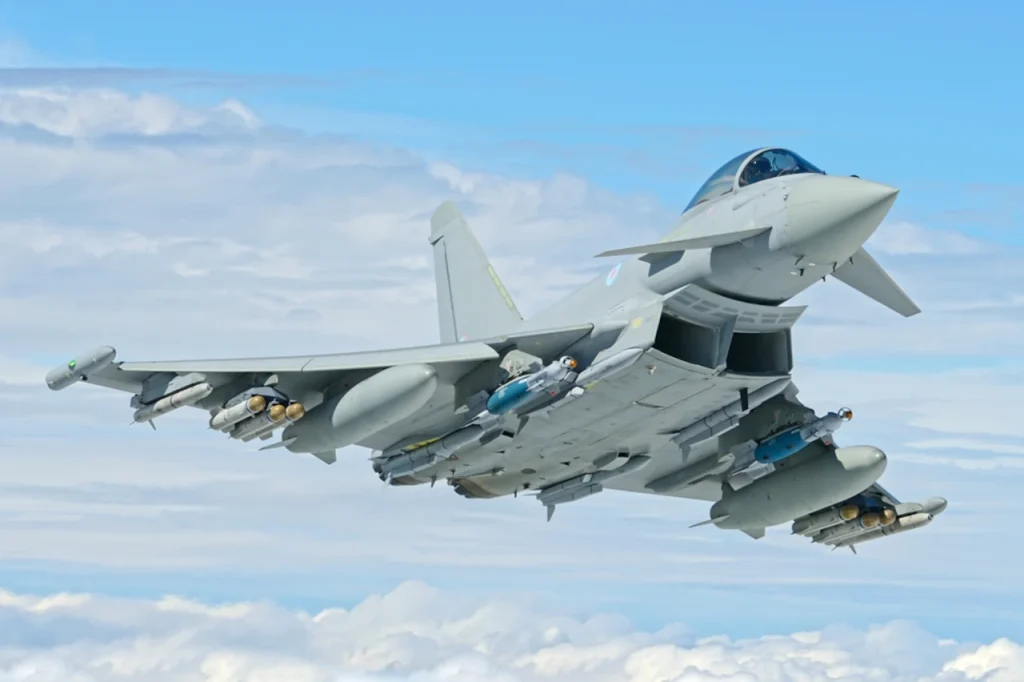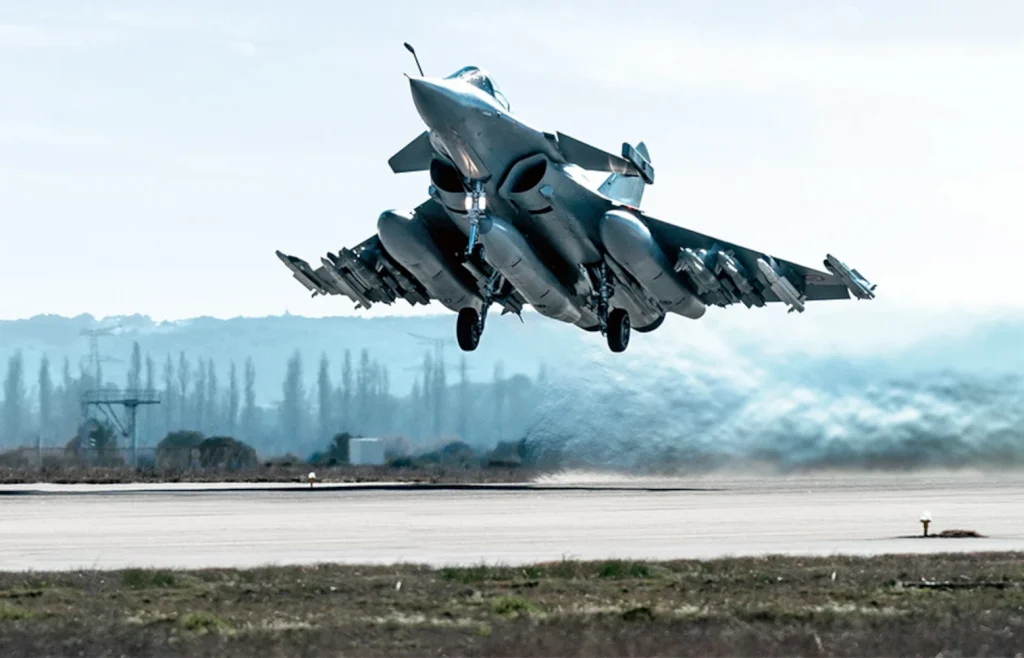Boeing has reportedly presented the latest F-15EX Eagle II fighter aircraft to the Kingdom of Saudi Arabia to compete with the Rafale and Eurofighter Typhoon fighter aircraft for a contract with the wealthy Arab state.
The Royal Saudi Air Force has historically operated earlier versions of the F-15 aircraft, including the F-15 Eagle and F-15SA aircraft.
According to a Boeing spokesperson who recently spoke to the defense media outlet War Zone, the F-15EX fighter aircraft is the best option to enhance the vital capabilities of the Kingdom of Saudi Arabia as the country seeks to modernize its armed forces.
Boeing emphasized that the F-15EX fighter aircraft shares characteristics with previous versions of the F-15 aircraft, including infrastructure, training equipment, trainers, and pilot skills.

Currently, the Royal Saudi Air Force operates 84 F-15SA fighter aircraft.
Boeing’s statement, presenting the F-15EX fighter aircraft to Saudi Arabia, confirms the competition among three companies for a lucrative contract that includes up to 100 fighter aircraft for the wealthy Arab state.
Boeing will compete with its latest F-15EX fighter against the Rafale, developed by Dassault Aviation, and the Eurofighter Typhoon, developed by a European consortium comprising the United Kingdom, Germany, Spain, and Italy.
In October last year, reports indicated that Saudi Arabia was considering a proposal to purchase 54 Rafale fighter aircraft from France for its air force after being denied Eurofighter Typhoon aircraft by Germany.
If Saudi Arabia proceeds with the purchase of Rafale fighter aircraft, it would be the Arab state’s first procurement of French-made fighter jets.
The French weekly newspaper La Tribune reported that Saudi Arabia has officially requested pricing information to purchase 54 Rafale fighter aircraft from its manufacturer, Dassault Aviation.
The French newspaper previously mentioned that the Saudi government plans to purchase between 100 and 200 Rafale fighter aircraft, which are also used by many of its Arab neighbors.
For several years, Dassault Aviation has succeeded in penetrating the Middle Eastern market, where many Arab countries have purchased Rafale fighter jets.

Among them are Egypt, the United Arab Emirates, and Qatar, all of which have acquired Rafale fighter aircraft.
Shortly after Saudi Arabia expressed its intention to begin negotiations with France to purchase 54 Rafale fighter aircraft, the German government withdrew its objection to selling Eurofighter Typhoon aircraft to the Arab state.
This sudden decision by the German government opened up competition between the Eurofighter Typhoon and the Rafale to win a multi-billion-dollar contract with the Saudi government.
The proposal to sell 48 Eurofighter Typhoon fighter aircraft to Riyadh faced problems after the German government halted the sale of any weapons to Saudi Arabia in 2018.
The deal to sell Eurofighter Typhoon aircraft to Saudi Arabia faced further issues when a British court in 2019 banned arms exports to the Arab state due to its military campaign in Yemen.
However, due to the Yemen ceasefire, Britain wants to proceed with selling 48 Eurofighter Typhoon aircraft.
Britain has pressured Germany to agree to continue the sale. London stated that Germany no longer has a reason to prevent the sale of Eurofighter fighter aircraft after the United Nations brokered a ceasefire agreement between Saudi Arabia and Yemen last year.
Since then, Germany has finally announced lifting its restrictions on arms sales to Saudi Arabia, but no Typhoon orders have been signed yet.
However, the Eurofighter isn’t the only agreement that Germany has opposed. Saudi Arabia has been exploring purchasing at least five submarines for over a decade. In 2013, there were reports of a 2.5 billion euro order from Germany, which ThyssenKrupp Marine Systems refuted.
France could leverage the Rafale agreement through its submarine exports to Saudi Arabia.
Meanwhile, Washington is seeking to smooth over its differences with Riyadh following the deterioration of their diplomatic relations caused by President Biden’s statements in which he said he wanted to make the kingdom a “pariah state” due to the assassination of journalist Jamal Khashoggi and its military involvement in Yemen. An agreement for a new “defense pact” in exchange for normalization of relations between Saudi Arabia and Israel is reportedly on the verge of being finalized. Hence, Boeing is gearing up to propose its F-15 Eagle II fighter bomber to the Saudi Royal Air Force.
Did the Rafale function as a “catalyst” to facilitate Riyadh’s access to the “Typhoon” and secure concessions from the U.S.? Maybe, but maybe not.
Talal Bin Abdullah Al-Otaibi, the Saudi Arabian Deputy Defense Minister, recently traveled to Paris. “During the meetings, the strategic relations between the two friendly countries were reviewed,” the Saudi Ministry of Defense said in a statement released on May 2. Additionally, it was explicit that the discussions were primarily centered around “defense cooperation and means of improving and developing it.”
Furthermore, the Saudi official met with the CEOs of Dassault Aviation, with whom he discussed production capabilities. He then met Naval Group’s Pierre-Éric Pommellet and MBDA’s Éric Béranger. He also visited several industrial sites, including the shipyards in Lorient and Cherbourg.
France hopes to sell Saudi Arabia Rafale’s, Submarines, and even the Defense and Intervention frigate or FDI.
